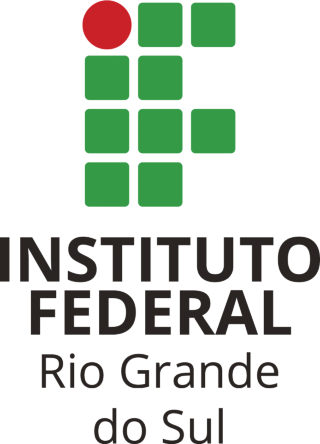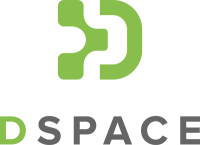| dc.contributor.advisor |
Escott, Clarice Monteiro |
pt_BR |
| dc.contributor.author |
Silveira, Lisiane Bender da |
pt_BR |
| dc.date.accessioned |
2021-03-25T20:07:50Z |
pt_BR |
| dc.date.accessioned |
2021 |
pt_BR |
| dc.date.issued |
2020 |
pt_BR |
| dc.identifier.uri |
https://dspace.ifrs.edu.br/xmlui/handle/123456789/226 |
pt_BR |
| dc.description.abstract |
A pesquisa que trata da autoavaliação dos cursos de Ensino Médio Integrado com vistas ao desenvolvimento de uma proposta para autoavaliação desta modalidade, ocorreu no âmbito do Programa de Mestrado Profissional em Educação Profissional e Tecnológica (ProfEPT), do Campus Porto Alegre do Instituto Federal de Educação, Ciência e Tecnologia do Rio Grande do Sul (IFRS), na Linha de Pesquisa Organização e Memórias dos Espaços Pedagógicos em Educação Profissional e Tecnológica (EPT). Teve como objetivo investigar os indicadores necessários para a avaliação dos cursos
de EMI com vistas ao desenvolvimento de um instrumento de autoavaliação para esses cursos no IFRS. Em termos metodológicos, a pesquisa pode ser classificada como aplicada, de abordagem qualitativa e caracterizada como participante. Os instrumentos de coleta de dados foram: análise do referencial teórico; análise documental de documentos institucionais do IFRS (Política Institucional para Cursos de Ensino Médio Integrado do IFRS - PICEMI-IFRS e o Programa de Autoavaliação do IFRS - PAIIFRS); entrevistas semiestruturadas, que visavam investigar a formulação e reformulação dos Projetos Pedagógicos de Cursos (PPC) de Ensino Médio Integrado de dois campi do IFRS. Os participantes da pesquisa foram docentes e técnico administrativos em educação (TAE) dos campi Ibirubá e Veranópolis do IFRS,
bem como os membros da Comissão Própria de Avaliação (CPA). O aporte teórico que sustenta a pesquisa considera autores que discutem a formação humana integral no âmbito da EPT e, em especial, no ensino médio. Considera que o Ensino Médio Integrado (EMI) é uma possibilidade de superação da dualidade estrutural a partir da formação integral dos estudantes. Nesse contexto, observa-se uma ausência de avaliação ou autoavaliação para os cursos de EMI, visando suscitar reflexões sobre
essa modalidade de oferta. A partir dos dados coletados, mediante as entrevistas, emergiram os indicadores que auxiliaram no estabelecimento de critérios necessários para a definição de questões para a autoavaliação dos cursos de EMI, considerandose os seguintes referentes: Ensino Médio Integrado; Trabalho como princípio educativo; Pesquisa como princípio pedagógico; Construção coletiva por meio da participação/Democracia; Interdisciplinaridade; Formação continuada de professores e TAEs; Permanência e êxito; Avaliação; Infraestrutura física. A partir dos resultados
dessa investigação, foram criados dois produtos educacionais (PE), do tipo material textual: o Instrumento de Autoavaliação do Ensino Médio Integrado e o Caderno de Autoavaliação do Ensino Médio Integrado. Tais produtos foram avaliados positivamente por docentes, TAEs e estudantes do Campus Ibirubá, bem como membros da CPA atual. Os avaliadores consideraram os PEs adequados para a autoavaliação do EMI. Os resultados apontaram para a necessidade de autoavaliação como forma de fortalecer os cursos de Ensino Médio Integrado, podendo contribuir para a consolidação da oferta dessa modalidade no IFRS e nas demais instituições da Rede Federal de Educação Profissional, Científica e Tecnológica (RFEPCT), além da discussão sobre um currículo efetivamente integrado e sobre a cultura avaliativa
nos Institutos Federais. |
pt_BR |
| dc.description.abstract |
The research that deals with the self-evaluation of the Integrated High School (EMI) courses with the aim of developing a proposal for self-evaluation of this modality, took
place within the scope of the Professional Master's Program in Vocational and Technological Education (ProfEPT), at the Porto Alegre Campus of the Federal
Institute of Education, Science and Technology of Rio Grande do Sul (IFRS), in the Line of Research Organization and Memories of Educational Spaces in Vocational and
Technological Education (EPT). The objective was to investigate the necessary indicators for the evaluation of EMI courses with a view to developing a self-evaluation
instrument for these courses in the IFRS. In methodological terms, the research can be classified as applied research, of qualitative approach and characterized as participant research. The data-collection instruments were: analysis of the theoretical framework; documentary analysis of IFRS institutional documents (Institutional Policy for IFRS Integrated High School Courses - PICEMI-IFRS and the IFRS Self-evaluation Program - PAIIFRS); semi-structured interviews, which aimed to investigate the formulation and reformulation of the Pedagogical Projects of Integrated High School
Courses (PPC) of two IFRS campuses. The participants in the research were teachers and administrative technicians in education (TAE) of the campuses Ibirubá and Veranópolis of IFRS, as well as members of the Self-Evaluation Commission (CPA).
The theoretical framework that gives support to the research takes into account authors who discuss integral human formation in the context of EPT and, especially, in high school. It considers that Integrated High School (EMI) is a possibility to overcome
the structural duality starting from the integral formation of students. In this context, it was noted that there is an absence of evaluation or self-evaluation, for the EMI courses,
aiming to stimulate reflections on this offer modality. From the collected data, through the interviews, emerged the indicators that helped in the establishment of the necessary criteria for the definition of questions for the EMI courses self-evaluation,
considering the following referents: Integrated High School; Work as an educational principle; Research as a pedagogical principle; Collective construction through participation/Democracy; Interdisciplinarity; Continuous formation of teachers and
TAEs; Permanence and success; Evaluation; Physical infrastructure. Based on the results of this investigation, two educational products (PE) were created, of the textual material type: the Integrated High School Self-evaluation
instrument and the Integrated
High School Self-evaluation Booklet. These products were positively evaluated by teachers, TAEs and students from the Ibirubá campus, as well as members of the current CPA. The evaluators considered the PEs to be suitable for the EMI selfevaluation. The results pointed to the need for self-evaluation as a way to strengthen
the Integrated High School courses, and that it may contribute to the consolidation of this offer modality in the IFRS and in other institutions of the Federal Network of Vocational, Scientific and Technological Education (RFEPCT), in addition to the
discussion about an effectively integrated curriculum and the evaluation culture in Federal Institutes. |
en |
| dc.format.mimetype |
application/pdf |
pt_BR |
| dc.rights |
Open Access |
en |
| dc.subject |
Educação Profissional e Tecnológica |
pt_BR |
| dc.subject |
Ensino médio |
pt_BR |
| dc.title |
Avaliação institucional dos cursos de ensino médio integrado: um olhar a partir do instrumento de autoavaliação |
pt_BR |
| dc.type |
Dissertação |
pt_BR |
| dc.degree.grantor |
Instituto Federal de Educação, Ciência e Tecnologia do Rio Grande do Sul |
pt_BR |
| dc.degree.level |
Mestrado |
pt_BR |
| dc.degree.date |
2020 |
pt_BR |
| dc.degree.local |
Porto Alegre, BR-RS |
pt_BR |
| dc.degree.program |
Programa de Pós-Graduação em Educação Profissional e Tecnológica (ProfEPT) |
pt_BR |
| dc.degree.department |
Campus Porto Alegre |
pt_BR |



